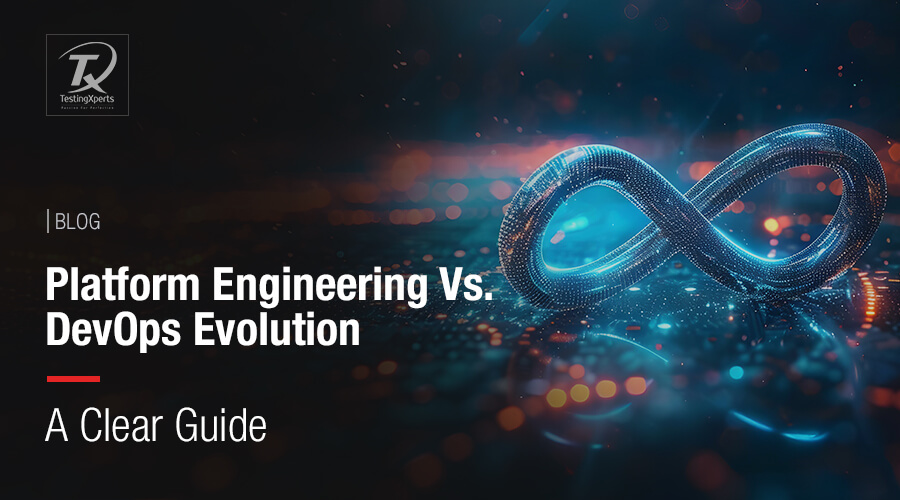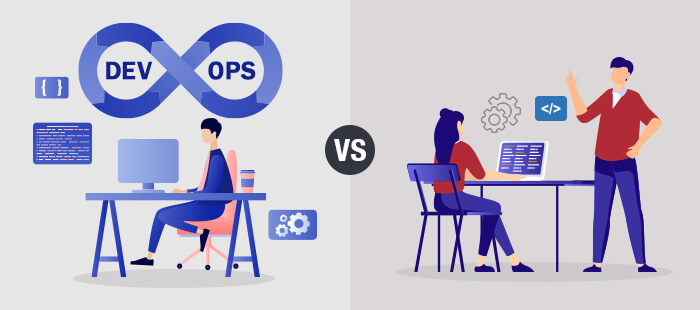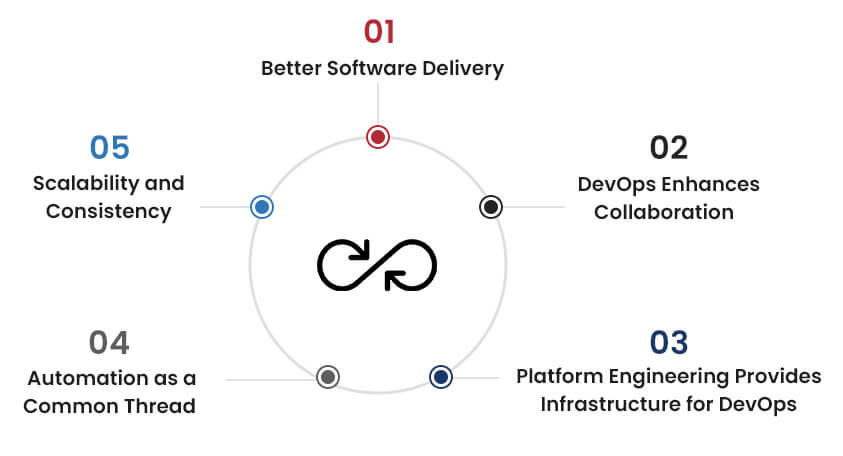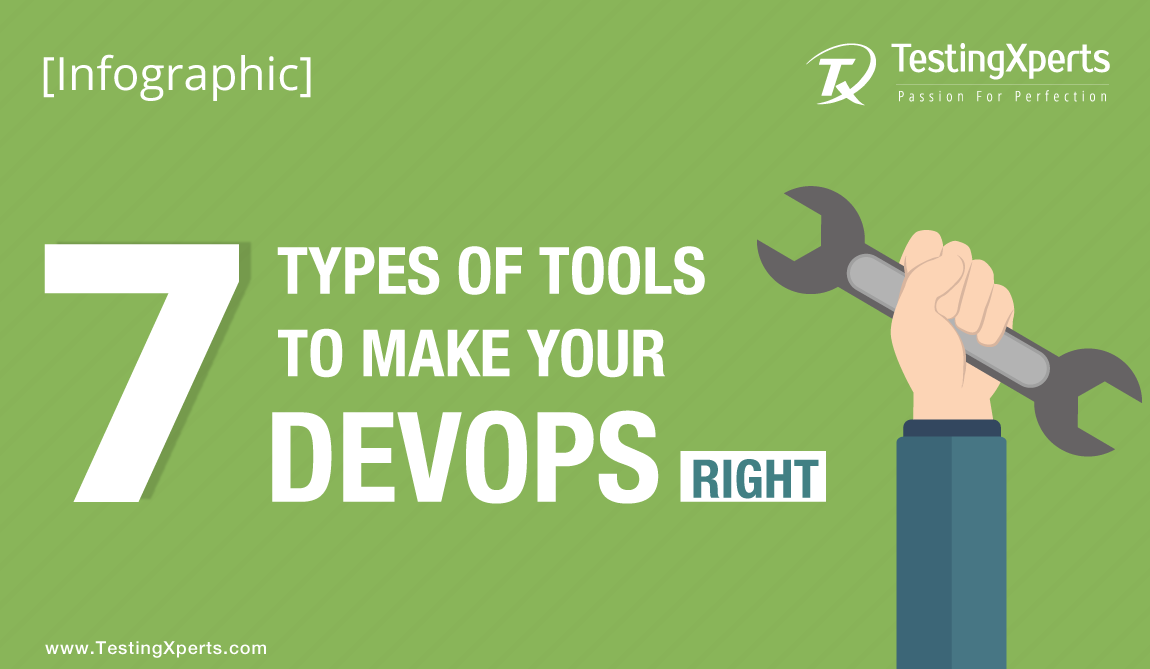
- What is DevOps
- What is Platform Engineering
- DevOps vs. Platform Engineering: The Comparison
- How Platform Engineering and DevOps Work Together
- How Tx can help you make the most of DevOps and Platform Engineering
“The future of software development lies not in replacing DevOps, but in evolving it”
According to a 2023 survey by Puppet, 78% of organizations that implement both DevOps and platform engineering practices report faster and more reliable software delivery.
Platform engineering is the talk of the day in modern software development and delivery with some suggesting that it is here to replace DevOps, and even claiming that DevOps is no more. With these statements, it is important to recognize that platform engineering is not a replacement, rather an evolution of infrastructure delivery, established in the same core principles that drive DevOps.
In this blog, we’ll talk about platform engineering, exploring what it actually covers and breaking down its key components.

DevOps is a technical method of software development that emphasizes collaboration between development (Dev) and operations (Ops) teams. Its aim is to streamline the whole software delivery process, from code creation to deployment and maintenance.
DevOps break down the communication barriers between silos and accelerate the release cycles. It improves the software quality while enabling more frequent and reliable updates. DevOps includes practices like Continuous Integration (CI), Continuous Delivery (CD), Automation, and Monitoring to create an efficient, and agile environment. It allows the organizations to respond to the changes quickly while improving overall software performance.

Platform engineering is the practice of building and designing platforms that help rationalize the development and deployment of software. It pays attention on creating reusable infrastructure and tools that developers may leverage to build, test, deploy applications more efficiently. This offers a standardized platform for deployment, significantly reducing the complexity involved in managing multiple environments. Platform engineering thus covers the gap between development and operations, enhancing scalability, productivity, and consistency across the software delivery lifecycle.
DevOps vs. Platform Engineering: The Comparison

DevOps
DevOps and Platform engineering both aim to magnify software delivery, however they differ in execution and focus. DevOps is an operational concept that bridges the gap between development and operations teams. It encourages collaboration, Continuous Integration, and Continuous Delivery (CI/CD) to streamline code deployment and reduce time-to-market. DevOps pays attention to automate processes, perking up communication, and removing bottlenecks between teams to create an agile and efficient development pipeline.
Platform Engineering
Platform engineering on the other hand, is a more technical approach that pays attention in creating reusable, self-service infrastructure and tools for developers. This includes building internal platforms that abstract the complexities of permitting developers to access standardized environments and services like CI/CD pipelines, infrastructure management, and monitoring. While DevOps is primarily about culture and collaboration, platform engineering is about the creation of scalable, automated platforms, simplifying and enhancing the while software development lifecycle.
How Platform Engineering and DevOps Work Together

“Platform engineering and DevOps aren’t rivals; they’re partners driving the future of modern software delivery.”
Better Software Delivery
- DevOps and Platform engineering both aim to optimize and accelerate software delivery by reducing bottlenecks and improving efficiency.
- They aim to automate processes and enable rapid, reliable releases.
DevOps Enhances Collaboration
- DevOps focuses on breaking down silos between development and operations teams, boosting communication and collaboration.
- Platform engineering complements by offering the tools and environments required for seamless collaboration across teams.
Platform Engineering Provides Infrastructure for DevOps
- It builds the reusable infrastructure that DevOps teams leverage for continuous integration and continuous delivery (CI/CD) pipelines.
- Creating scalable and automated environments, platform engineering permits DevOps to pay attention to code deployment and testing and not to infrastructure management.
Automation as a Common Thread
- Automation is central to both DevOps and Performance testing practices. DevOps automates testing and delivery processes, while platform engineering automates the creation and infrastructure management.
- Ensures smoother, faster workflows and reduce human error
Scalability and Consistency
- Platform engineering ensures consistency in development environments platform with uniform, self-service platforms. This reduces variability in DevOps, enabling teams to work with reliable infrastructure across various projects.
- DevOps uses these platforms to scale software delivery, ensuring that development, testing, and production remain aligned.
Combining the strengths of platform engineering and DevOps, organizations can achieve more reliable, faster, and scalable software delivery and maintain security, consistency, and collaboration throughout the process.
How Tx can help you make the most of DevOps and Platform Engineering

Tx is committed to helping businesses completely use the power of DevOps and platform engineering by offering tailored, scalable solutions that streamline development and operational workflows. Through automation, collaboration, and infrastructure optimization, we make sure that your teams can focus on innovation and reduce complexity. Integrating best practices in security, performance, and monitoring, Tx empowers enterprises to deliver high-quality software faster and more reliably.
Regardless, you are looking to enhance efficiency, improve developer experience, or scale with confidence, Tx offers expertise and tools to make the most of your DevOps and platform engineering journey.
Conclusion
In conclusion, platform engineering and DevOps are not competing methodologies, but complementary approaches that work together to enhance modern software development and delivery. While DevOps emphasizes the cultural and collaborative aspects of bridging development and operations teams through automation and continuous integration, platform engineering focuses on building the underlying infrastructure and tools that enable these processes to run smoothly at scale.
Platform engineering evolves the DevOps landscape by creating self-service platforms, automating repetitive tasks, and providing developers with consistent, reusable environments. Together, they form a powerful combination that accelerates delivery cycles, enhances security, and improves the overall developer experience. As software demands continue to grow, embracing both DevOps and platform engineering will ensure organizations remain agile, efficient, and equipped for the future of development.
Discover more
Get in Touch
Stay Updated
Subscribe for more info




